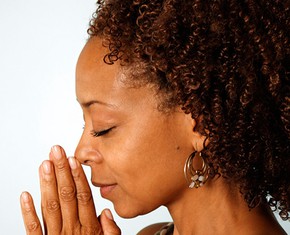The views expressed in our content reflect individual perspectives and do not represent the authoritative views of the Baha'i Faith.
Every language in the world has two diametrically opposed subsets to it. They are so prevalent, that you could almost refer to them as dialects. Some languages are more known for them than others. No, I am not talking about classical and slang, or even verbal and non-verbal. It is the juxtaposition of positive and negative language.
I am going to let you in on two secrets. If you know me at all or have even read some of my work, you’re going to be shocked into denial. You won’t believe me. You won’t believe me because I have authored six books, numerous articles and even my letters to the editor have, at times, been published. I have spoken in international conferences and have been doing so since I was a teenager.
My first secret is this: I have done all these things and yet, one of the things I struggle with most in life is to communicate. How ironic this is, since I have often been told that I am articulate, and since I am often the first one to voice the dissension in the room or address bullying behaviors head-on. And I don’t back down easily. In this regard, the Baha’i teachings say:
There is no fire in the eyes of those who have known God and His signs, fiercer than to transgress His laws and to oppress another soul, even to the extent of a mustard seed. – The Bab, Selections from the Writings of The Bab, p. 79.
But the truth is… I speak the language of negativity. It is the language of sarcasm. Sure, that can be fun and even funny. But consider this: It is also the language of threat and consequence or punishment. It is a way of talking about and describing events, and their outcomes, in terms of the negative consequences that will happen: “If you do this, then this bad thing will happen to you.” Or “Doing this makes you a bad person and you won’t have any friends.”
This language is a part of my internal map. It is not only how I communicate with others, but it is how I communicate with myself. Those negative things that were said to me as a child, I now say to myself when I am stressed, scared, or unhappy, or think that I am lost. I pull out my map to see where I am, and all I see and hear are these voices that say things like “See, they were right. You are a loser. You are a failure and you’re never going to amount to anything.”
I am not alone. Many people speak this language and I hear it every day. I hear it in conversations between parents and children, between clients and vendors, and between strangers.
It makes for great television and movie dialogue, but the truth is that in real life, it is isolating. You see, I feel trapped inside myself because I am not actually a negative person. I believe in the capacity of humans to love and that we are headed inexorably towards world peace, and I believe that there is a power beyond all of us that makes the universe what it is.
And in everyday conversations, I struggle to convey this, because I grew up with the language of negativity and not positivity. I am now and always have been a very optimistic person. But the language I use most often does not convey what lies beneath.
I can write, and I can write well, because words on paper are just that. I learned the language of negativity. And I am imprisoned by it.
I did not hear about the great things that would happen if I did something good or right. I heard about the consequences of doing something bad or wrong: “Barbie, don’t do this or you will get spanked.” “Barbie, don’t do that or you’ll get into trouble.”
So now I speak in the language of negativity, and I struggle. I struggle to make social connections, I struggle to give good advice, and I struggle in business. The more stressed I am, the more I struggle.
As Baha’is, we are advised to follow this guidance:
Thus no member should ever allow himself to be prevented from expressing frankly his view because it may offend a fellow member; and, realizing this, no member should take offence at another member’s statements. – The Universal House of Justice, to a National Spiritual Assembly, August 1965.
To be honest, I wrestle with this because I mean no offence, and yet it seems sometimes I still inadvertently offend others.
I am envious of people who raise their children with the language of positivity. Because it seems that every time I open my mouth to speak, or sit down to write, I use words that others find offensive and off-putting. I might as well be speaking another language entirely. They either don’t understand what I have to say, or they don’t want to hear it, or worse, they think I’m an idiot.
I have to force myself to speak in the language of positivity. As a Baha’i, I am advised to:
Be fair in thy judgment, and guarded in thy speech. – Baha’u’llah, Gleanings From the Writings of Baha’u’llah, p. 285.
Does this simply mean don’t be judgmental and follow the rule about not saying anything if you can’t say anything nice?
Do you have an idea of what it’s like speaking to a crowd of a hundred or more people when they want to hear something inspirational, and instead, you talk about everything that’s wrong with what they’ve done up until now? Do you have an idea of how hard it is to write marketing copy or get meetings with clients when they want to hear how you can fix the one tiny thing that’s wrong, and instead, you talk about how everything around them is basically crumbling?
Well, as you probably guessed, I have a very good idea of what that’s like.
My second secret is that despite being so full of empathy that I cry at commercials and songs, I often struggle with relating to others. Don’t get me wrong, I feel when others are in pain and I feel when they are happy, and I feel those things as if they were my own feelings. I can relate to what they’re going through and I can understand how it makes them feel and why. But, remember how I said the language of negativity was isolating? Well, this is where that language directly impacts my life.
I have trouble understanding people who only speak in the language of positivity and only want to hear things told to them in a nice way. I’m sure that’s how we human beings developed the “feedback sandwich.” You know, where you tell someone something good, then something they need to work on and then follow that with another good thing.
I can’t understand people who only want to hear about when things are going right or want to focus on the positive when they’re not going right. I can’t understand how people don’t want to admit the cold, hard facts of the truth they live with every day.
When did the language of negativity become synonymous with truth and fact? When did positivity become synonymous with delusion and fantasy? That is the implication, is it not? That if so-called cold, hard facts and truth are spoken in the language of negativity, then anything spoken in positivity must logically be fiction.
But, this actually begs the question: is the negative perspective actually the truth?
Recently, I have been questioning this more and more.
















Comments
Sign in or create an account
Continue with Googleor